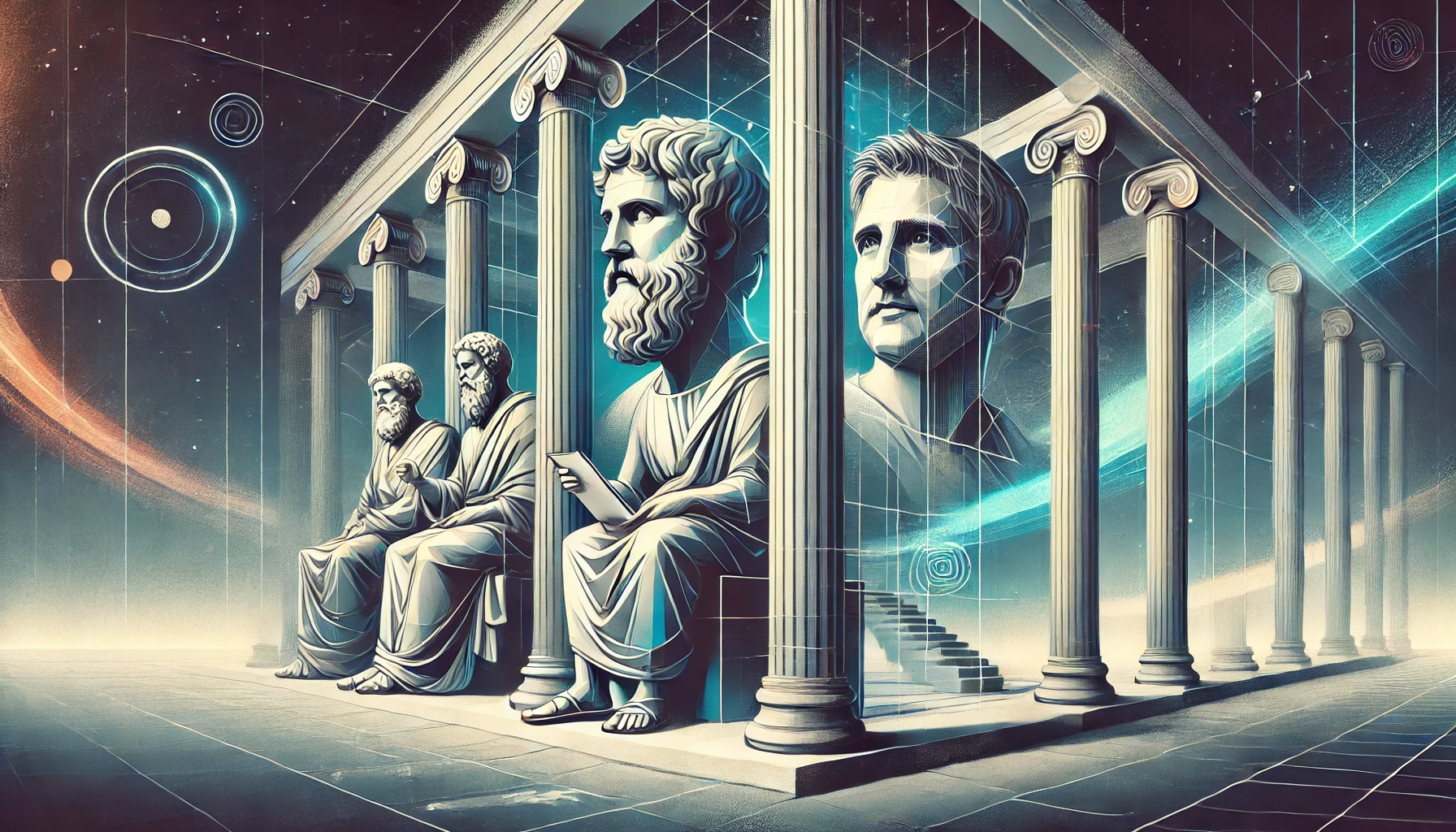In the hustle and bustle of modern life, the timeless wisdom of Stoicism has seen a remarkable resurgence. As people search for ways to navigate the complexities of the 21st century, many have turned to the principles of Stoic philosophy to find guidance, balance, and inner peace. But who are the modern Stoics, and how are they applying ancient teachings to today’s challenges? Let’s explore the key figures and movements that are keeping Stoicism alive in the contemporary world.
Who Are the Modern Stoics?
Modern Stoics are individuals from diverse backgrounds who have embraced the teachings of ancient Stoicism to navigate the challenges of today’s fast-paced, often chaotic world. Unlike their ancient counterparts, today’s Stoics are not limited to philosophers or scholars. They include entrepreneurs, writers, psychologists, and even athletes who find value in Stoic principles such as resilience, rationality, and control over one’s emotions.
Key Figures in Modern Stoicism
1. Ryan Holiday
Ryan Holiday is one of the most prominent voices in the modern Stoic movement. A bestselling author and media strategist, Holiday has introduced millions to Stoic philosophy through his books such as The Obstacle Is the Way and The Daily Stoic. Holiday’s work focuses on applying Stoic principles to personal development, leadership, and resilience in the face of adversity.
“The obstacle in the path becomes the path. Never forget, within every obstacle is an opportunity to improve our condition.” – Ryan Holiday
Impact on Stoicism: Holiday has played a crucial role in popularizing Stoicism, making it accessible and relevant to a broad audience, particularly in the realms of business and personal growth.
2. Massimo Pigliucci
Massimo Pigliucci is a philosopher and professor who has become a leading advocate for the practical application of Stoicism in modern life. His books, including How to Be a Stoic, provide a detailed exploration of Stoic philosophy and its relevance today. Pigliucci emphasizes the importance of ethics, virtue, and rationality in leading a good life.
“We suffer more in imagination than in reality.” – Massimo Pigliucci (paraphrasing Seneca)
Impact on Stoicism: Pigliucci has brought an academic rigor to the modern Stoic movement, ensuring that Stoicism is not just a trend but a deeply rooted philosophical tradition that continues to offer valuable insights.
3. Tim Ferriss
Tim Ferriss, the bestselling author and entrepreneur, has credited Stoic philosophy as one of the key influences on his work and life. Through his books and podcast, Ferriss has introduced a new generation to Stoic principles, particularly the concepts of negative visualization and the dichotomy of control.
“It is not the events themselves that disturb us, but our interpretations of them.” – Tim Ferriss (inspired by Epictetus)
Impact on Stoicism: Ferriss has helped to popularize Stoicism among entrepreneurs and productivity enthusiasts, highlighting its practical applications in achieving success and maintaining mental clarity.
4. Donald Robertson
Donald Robertson is a cognitive-behavioral psychotherapist and author who has written extensively on the intersection of Stoicism and modern psychology. His book, Stoicism and the Art of Happiness, explores how Stoic techniques can be integrated with cognitive-behavioral therapy (CBT) to improve mental well-being.
“We cannot choose our external circumstances, but we can always choose how we respond to them.” – Donald Robertson (inspired by Epictetus)
Impact on Stoicism: Robertson has bridged the gap between ancient philosophy and modern therapy, showing how Stoic practices can be used to manage emotions and cultivate resilience.
5. Irvine William B.
Irvine William B., author of A Guide to the Good Life: The Ancient Art of Stoic Joy, has played a significant role in bringing Stoicism to a mainstream audience. His work focuses on how Stoic philosophy can help individuals lead a more contented and meaningful life by focusing on what truly matters.
“The Stoics realized that to have a good life, it is not enough to ‘be good’; we must also be good at being good.” – Irvine William B.
Impact on Stoicism: Irvine has contributed to the understanding of how Stoic principles can be applied to everyday life, helping readers find joy and purpose.
The Modern Stoic Movement
The modern Stoic movement is not limited to individuals. It encompasses a global community of practitioners who connect through online forums, social media, and events like Stoicon, an annual conference dedicated to Stoic philosophy. This movement has made Stoicism more accessible, allowing people from all walks of life to engage with the philosophy and apply its teachings in their personal and professional lives.
Online Communities
Online communities such as The Daily Stoic’s social media platforms, Reddit’s r/Stoicism, and various Stoic-themed blogs and podcasts have played a pivotal role in spreading Stoic philosophy. These platforms offer a space for individuals to share insights, ask questions, and support one another in their Stoic practices.
Stoicon
Stoicon is the largest gathering of Stoics worldwide, bringing together speakers, authors, and enthusiasts to discuss and explore Stoic philosophy. The event has helped to solidify the modern Stoic movement, providing a forum for the exchange of ideas and the promotion of Stoic practices.
Stoic Week
Stoic Week is an annual event where participants follow a week-long course of Stoic exercises and reflections. Organized by the Modern Stoicism organization, this event has introduced thousands to the practical benefits of Stoicism, encouraging them to incorporate Stoic practices into their daily lives.
Conclusion
Modern Stoicism is more than just a revival of an ancient philosophy; it is a dynamic and evolving movement that continues to offer practical guidance for navigating the challenges of contemporary life. Through the efforts of key figures and the global Stoic community, the teachings of Stoicism have been adapted and applied to help people lead more fulfilling, resilient, and purposeful lives. Whether you’re seeking personal growth, mental clarity, or simply a way to navigate life’s obstacles, the wisdom of the modern Stoics offers valuable insights that are just as relevant today as they were over two thousand years ago.

